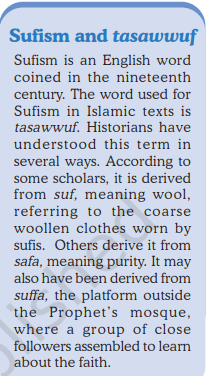Syllabus :GS 1/History
In News
- A Hindu Sena petition was admitted in an Ajmer court, claiming a Shiva temple lies beneath the Ajmer Sharif dargah, and calling for an archaeological survey.
- The dargah is the mausoleum of Khwaja Moinuddin Chishti, a key figure in the spread of Sufism in the subcontinent.
- The shrine was built by Mughal Emperor Humayun in his honor.
Khwaja Moinuddin Chishti
- Early Life: He was born in 1141 CE in Persia (modern-day Iran) and was orphaned at 14. He embarked on a spiritual journey after meeting Ibrahim Qandozi, a mystic.
- Moin-ud-din, believed to be a descendant of Muhammad.
- Spiritual Training: Moinuddin studied various subjects in Bukhara and Samarkand before being initiated into the Chishti Sufi order by Khwaja Usman Harooni near Herat.
- Arrival in Ajmer: in 1192 CE, Moinuddin arrived in Ajmer, during the decline of the Chauhan dynasty following its defeat by Muhammad of Ghor.
- He chose to stay and help the suffering population.
- Title “Garib Nawaz”: Moinuddin earned the title “Garib Nawaz” (friend of the poor) for his selfless service, including building a refuge and langarkhana (community kitchen) for the homeless and needy.
- Contributions and Teachings : Moinuddin interacted with Hindu mystics and sages, sharing common values of devotion and rejecting religious orthodoxy, focusing on equality and divine love.
- Sufism emerged as a devotional and ascetic form of Islam, and the Chishti order, founded in the 10th century, was spread by Moinuddin and his disciples.
- Disciples : Prominent disciples like Qutbuddin Bakhtiyar Kaki, Baba Fariduddin, Nizamuddin Auliya, and Chirag Dehalvi helped spread Moinuddin’s teachings.
- His influence extended across regions and cultures.
- Mughal Patronage: Emperor Akbar revered Moinuddin, made pilgrimages to his shrine, and helped beautify Ajmer, contributing to the city’s revival.
- Legacy: Moinuddin’s teachings of love, compassion, and inclusivity continue to resonate in India’s religiously diverse landscape, bridging cultural gaps between communities.
About Sufism

- Sufis were Muslim mystics, rejected formal rituals and emphasized love, devotion to God, and compassion for humanity.
- They sought union with God, much like a lover seeks their beloved, and often composed poems expressing these feelings.
- Sufis, like the Nathpanthis and Yogis, used methods such as chanting, contemplation, dancing, and breath control under the guidance of a master to train the heart to see the world differently.
- From the 11th century, many Sufis from Central Asia settled in Hindustan, especially after the establishment of the Delhi Sultanate, where major Sufi centers flourished.
- They emphasized salvation through intense devotion and love for God, following the example of Prophet Muhammad.
- The Chishti order, with prominent figures like Khwaja Muinuddin Chishti and Qutbuddin Bakhtiar Kaki, became highly influential.
- Sufi masters held assemblies in their khanqahs (hospices), where devotees from all walks of life, including royalty and commoners, gathered for spiritual discussions, blessings, and music.
- Many attributed miraculous powers to Sufi masters, and their tombs (dargahs) became major pilgrimage sites, drawing people from all faiths.
Source: IE
Previous article
News In Short 30-11-2024
Next article
Cyclone Fengal